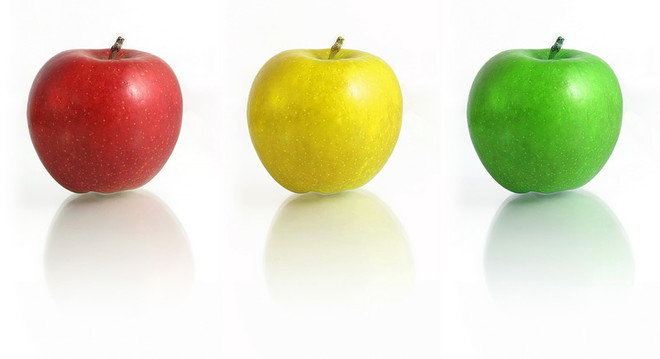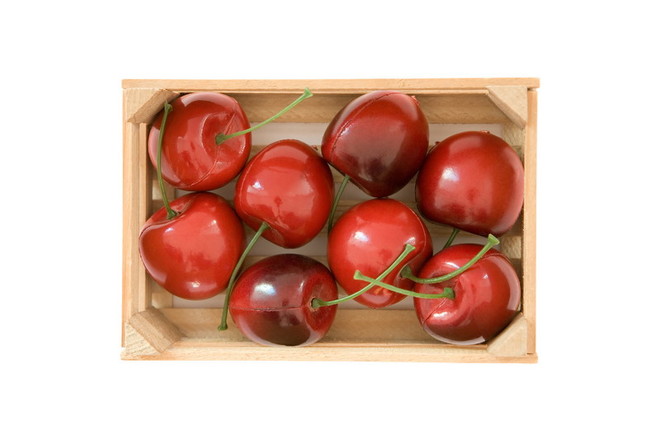This scary word "genetics" Genetically modifiedRemember how onIn biology lessons at school we were taught that genes are responsible for certain traits of plants or animals. "Remove" a gene - and the trait itself will disappear. And if the organism's code changes for some reason, this is called a mutation. In fact, all the organisms that surround us now are the result of a mutation. New species of plants, animals that differ from their ancient dinosaur ancestors - all these are the strongest that have been fighting for survival for thousands of years. Those whose genetic code is most suitable for existence on earth. But if nature needs more than a dozen centuries to form a new species, then modern science only needs a few years. The heyday of genetic engineering came at the end of the 20th century. In 1982, scientists conducted an experiment to change the genetic code of tobacco. And the first genetically modified food product was a tomato, which was "deprived" of the ripening gene. The new variety can be stored for months at a temperature of 12 degrees and ripen in a few hours in a warm place. The results of subsequent experiments were corn and pears that secrete their own poison against insect pests, potatoes that absorb a minimum of fat when fried, and about a hundred more "improved" crops. Russian scientists have developed genetically modified potatoes that boost immunity due to the human blood interferon they contain. And sheep whose milk contains rennet. Just 200 animals of the "new type" can provide cheese for the whole of Russia. "Natural" selection or an unexploded bomb? Humanity does not yet know the final answer to this question. Are GMOs capable of provoking allergic reactions, is resistance to the effects of antibiotics a consequence of eating genetically modified foods, and how can we "agree" on this? with nature, maintaining a natural ecological balance? To date, there is no clear evidence of harm from GMF to humans, which, however, does not mean the opposite. Supporters of the development of genetic engineering claim that artificially bred plants are much cleaner from an ecological point of view than natural ones grown with pesticides and fertilizers. Advocating for the widespread use of GMF, geneticists provide compelling arguments. According to scientists' forecasts, by the end of this century the number of people living on earth may double. How will people of the future get food for themselves if today a number of countries and regions are already starving? The answer is simple: genetic engineering is a completely accessible way to feed humanity. Don't eat GMF - will you become a kid?
Genetically modifiedRemember how onIn biology lessons at school we were taught that genes are responsible for certain traits of plants or animals. "Remove" a gene - and the trait itself will disappear. And if the organism's code changes for some reason, this is called a mutation. In fact, all the organisms that surround us now are the result of a mutation. New species of plants, animals that differ from their ancient dinosaur ancestors - all these are the strongest that have been fighting for survival for thousands of years. Those whose genetic code is most suitable for existence on earth. But if nature needs more than a dozen centuries to form a new species, then modern science only needs a few years. The heyday of genetic engineering came at the end of the 20th century. In 1982, scientists conducted an experiment to change the genetic code of tobacco. And the first genetically modified food product was a tomato, which was "deprived" of the ripening gene. The new variety can be stored for months at a temperature of 12 degrees and ripen in a few hours in a warm place. The results of subsequent experiments were corn and pears that secrete their own poison against insect pests, potatoes that absorb a minimum of fat when fried, and about a hundred more "improved" crops. Russian scientists have developed genetically modified potatoes that boost immunity due to the human blood interferon they contain. And sheep whose milk contains rennet. Just 200 animals of the "new type" can provide cheese for the whole of Russia. "Natural" selection or an unexploded bomb? Humanity does not yet know the final answer to this question. Are GMOs capable of provoking allergic reactions, is resistance to the effects of antibiotics a consequence of eating genetically modified foods, and how can we "agree" on this? with nature, maintaining a natural ecological balance? To date, there is no clear evidence of harm from GMF to humans, which, however, does not mean the opposite. Supporters of the development of genetic engineering claim that artificially bred plants are much cleaner from an ecological point of view than natural ones grown with pesticides and fertilizers. Advocating for the widespread use of GMF, geneticists provide compelling arguments. According to scientists' forecasts, by the end of this century the number of people living on earth may double. How will people of the future get food for themselves if today a number of countries and regions are already starving? The answer is simple: genetic engineering is a completely accessible way to feed humanity. Don't eat GMF - will you become a kid? The main arguments of the opponents are as follows.Short-term trials are not able to display the full range of consequences of GMO consumption. Negative effects may appear only after a long time. The loss of the gene pool is one of the main reasons for the rejection of genetic experiments. For example, it is believed that there is no place on earth where corn crops have not been contaminated with genetically modified plants. The same fate awaits other species. To eat or not to eat - everyone decides for themselves. Public opinion is against modified products, demand for them is falling, and individual food producers "cry" about their "genetic purity". But to be honest, there are practically no people who have never touched GMOs in their lives. This is evidenced by the fact that today in Russia about 120 names of genetically modified products are registered, but food producers do not report the presence of modified components either, naturally, in advertising or on the product packaging. Meat and dairy products, vegetables, etc. sometimes contain more than 80 percent of transgenes, but there is no law yet that would oblige producers to mark the goods in a special way. If you are afraid of running into GMOs, do not buy: semi-finished meat products (they often contain modified soy), broiler chickens (they are “fed” with growth hormones), unnaturally smooth and beautiful vegetables, food in fast food restaurants, corn. Organic food - back to basics Seeing trays of cucumbers or kefir packets on the supermarket counter, labeled with eye-pleasing seals "eco-friendly", "made from natural ingredients", "bio", etc., we naturally pay attention to this. And although products with the "AB" label are an order of magnitude more expensive, our hands automatically take them off the shelf and put them in the cart. The fashion for healthy eating has come to Russia. We realized that the diet should consist of natural and environmentally friendly products. But to what extent the quality of the contents corresponds to the inscription on the package, and on what basis the manufacturer puts the label - is unknown. Ecological food - what is it? In the West, there is a concept of "organic food" - organic, natural food. But the Russian market of ecologically clean food products is as new as genetically modified products. When we say "ecologically clean, organic product", we mean that it is not harmful to the human body, that vegetables do not contain nitrates, sausage and ham - carcinogens, yoghurts and curds - artificial color enhancers and preservatives. And they contain more vitamins, minerals and biologically active substances than traditional ones. Therefore, "organic food" is a source of health, energy and vigor.
The main arguments of the opponents are as follows.Short-term trials are not able to display the full range of consequences of GMO consumption. Negative effects may appear only after a long time. The loss of the gene pool is one of the main reasons for the rejection of genetic experiments. For example, it is believed that there is no place on earth where corn crops have not been contaminated with genetically modified plants. The same fate awaits other species. To eat or not to eat - everyone decides for themselves. Public opinion is against modified products, demand for them is falling, and individual food producers "cry" about their "genetic purity". But to be honest, there are practically no people who have never touched GMOs in their lives. This is evidenced by the fact that today in Russia about 120 names of genetically modified products are registered, but food producers do not report the presence of modified components either, naturally, in advertising or on the product packaging. Meat and dairy products, vegetables, etc. sometimes contain more than 80 percent of transgenes, but there is no law yet that would oblige producers to mark the goods in a special way. If you are afraid of running into GMOs, do not buy: semi-finished meat products (they often contain modified soy), broiler chickens (they are “fed” with growth hormones), unnaturally smooth and beautiful vegetables, food in fast food restaurants, corn. Organic food - back to basics Seeing trays of cucumbers or kefir packets on the supermarket counter, labeled with eye-pleasing seals "eco-friendly", "made from natural ingredients", "bio", etc., we naturally pay attention to this. And although products with the "AB" label are an order of magnitude more expensive, our hands automatically take them off the shelf and put them in the cart. The fashion for healthy eating has come to Russia. We realized that the diet should consist of natural and environmentally friendly products. But to what extent the quality of the contents corresponds to the inscription on the package, and on what basis the manufacturer puts the label - is unknown. Ecological food - what is it? In the West, there is a concept of "organic food" - organic, natural food. But the Russian market of ecologically clean food products is as new as genetically modified products. When we say "ecologically clean, organic product", we mean that it is not harmful to the human body, that vegetables do not contain nitrates, sausage and ham - carcinogens, yoghurts and curds - artificial color enhancers and preservatives. And they contain more vitamins, minerals and biologically active substances than traditional ones. Therefore, "organic food" is a source of health, energy and vigor. Advertising usually draws attention toproducts produced in ecologically clean areas, without the use of pesticides and other inorganic fertilizers. In addition, any additional ingredients (fillings, fillers, dyes), which are simply impossible to do without in production, must be natural. Although they are much more expensive than artificial ones, unstable to temperature fluctuations, their capabilities are limited. That is why it is more profitable for a mass producer to use artificial additives. The widest selection of organic, natural food products is currently presented in the USA. Movie stars and top models, popular TV presenters and economic magnates publicly declare their love for organic products. Several giant supermarket chains, a large number of farms provide "organic food" to everyone. In our country, there is still little real organic food. Of course, we can assume that everything that is grown in the fields of the Russian hinterlands is "organic food". A wide variety of products are called healthy, natural, and environmentally friendly. But they do not undergo any special tests. Apparently, the problem is also that the very concept of "ecologically clean" is not enshrined in law. When independent organizations check products for the absence of harmful chemicals, when a certificate and a special sign on the product label will be a guarantee of "purity", then the ranks of adherents of ecological food will grow. It will be sold in pharmacies, fitness centers, and specialized supermarkets. If you want to introduce ecological products into your diet today, choose: non-canned vegetables of "natural" type; fresh meat; seasonal fruits; cereals and unpolished rice.
Advertising usually draws attention toproducts produced in ecologically clean areas, without the use of pesticides and other inorganic fertilizers. In addition, any additional ingredients (fillings, fillers, dyes), which are simply impossible to do without in production, must be natural. Although they are much more expensive than artificial ones, unstable to temperature fluctuations, their capabilities are limited. That is why it is more profitable for a mass producer to use artificial additives. The widest selection of organic, natural food products is currently presented in the USA. Movie stars and top models, popular TV presenters and economic magnates publicly declare their love for organic products. Several giant supermarket chains, a large number of farms provide "organic food" to everyone. In our country, there is still little real organic food. Of course, we can assume that everything that is grown in the fields of the Russian hinterlands is "organic food". A wide variety of products are called healthy, natural, and environmentally friendly. But they do not undergo any special tests. Apparently, the problem is also that the very concept of "ecologically clean" is not enshrined in law. When independent organizations check products for the absence of harmful chemicals, when a certificate and a special sign on the product label will be a guarantee of "purity", then the ranks of adherents of ecological food will grow. It will be sold in pharmacies, fitness centers, and specialized supermarkets. If you want to introduce ecological products into your diet today, choose: non-canned vegetables of "natural" type; fresh meat; seasonal fruits; cereals and unpolished rice.

Making Money with Desserts: Success Stories
Evgeniya Polischuk (Fedutinova) instagram:@evgeniyafedutinovavk.com/janeshomebaking– It all started with baking for family and friends. Gradually, I started posting photos of my baked goods on Instagram – and orders started coming in. I made my first custom-made cake on October 13, 2014, and a little earlier I started making macaroons and cupcakes. You could say that the business “found me”, I am very […]

Soups are cold recipes with photos
Cold cucumber soup with yogurt and lemonsorbet from the chef of the restaurant La Taverna Alexander Zhurkin Photo: Getty Images Ingredients: Plain yoghurt – 125 g Cucumber – 150 g Lemon/lime sorbet – 50 g Cocktail shrimp – 24 g Fresh ginger juice – 1 g Lime juice – 5 g Fresh orange juice – 5 g Parsley – 1 g Pink pepper – 1 g Watercress – […]

barbeque kebab
Pork tenderloin in glaze Photo:Dmitry Bayrak/dbstudioPreparation time: 20 minutes + marinating time.Calories: 454 kcal per serving.For 4 servings: 4 pork tenderloins (approximately 300 g each), 1 onion, 2 cloves of garlic, 1 tsp. lemon zest, 1 tsp. lemon juice, a pinch of ground cumin, coriander and turmeric, 1 tbsp. vegetable […]

Pierre Duacan: dietary recipes: Ducane diet
Beetroot soup Photo:Season’S, Luxury Hotels RepresentationYou will need:· Boiled beetroot – 60 g· Fresh cucumbers – 20 g· Red radish – 20 g· Green onions – 10 g· Egg – 1 pc.· Drinking mineral water – 200 g· Salt – 1 gPreparation:· Boil the egg and beetroot.· Grate the cucumbers, radish and part of the beetroot. Put everything […]





